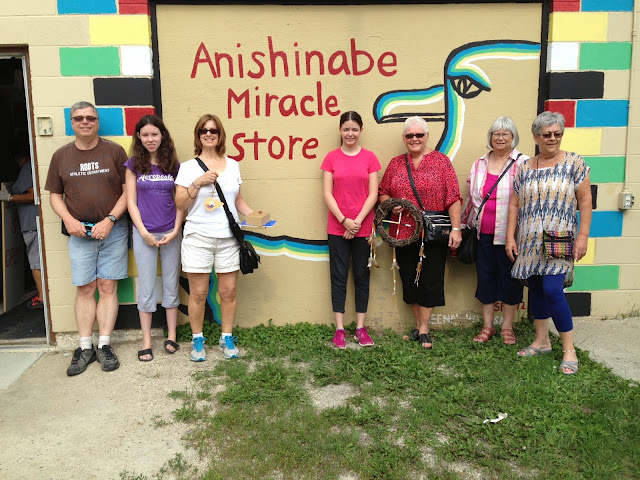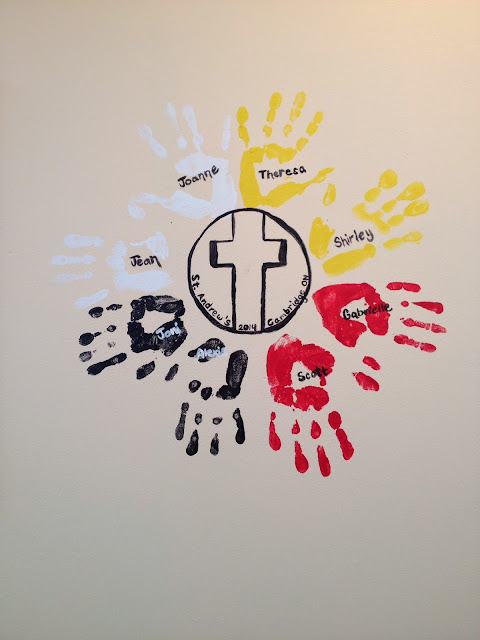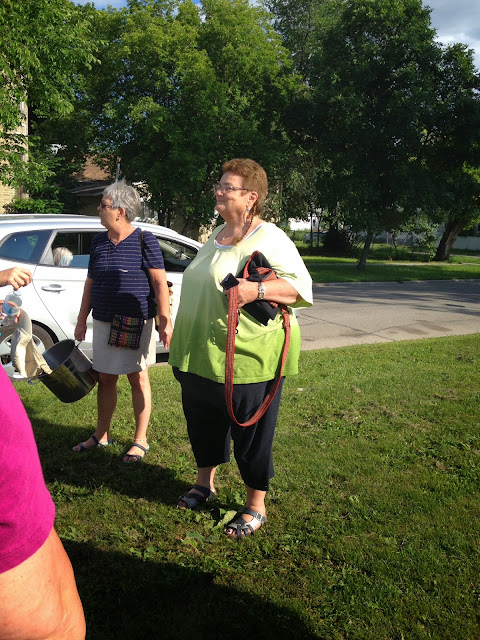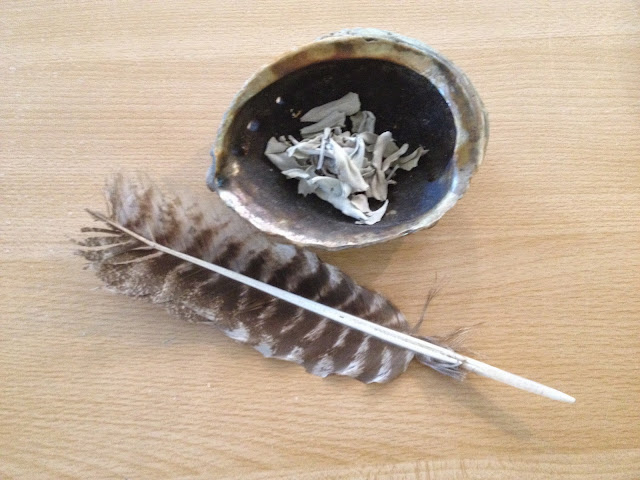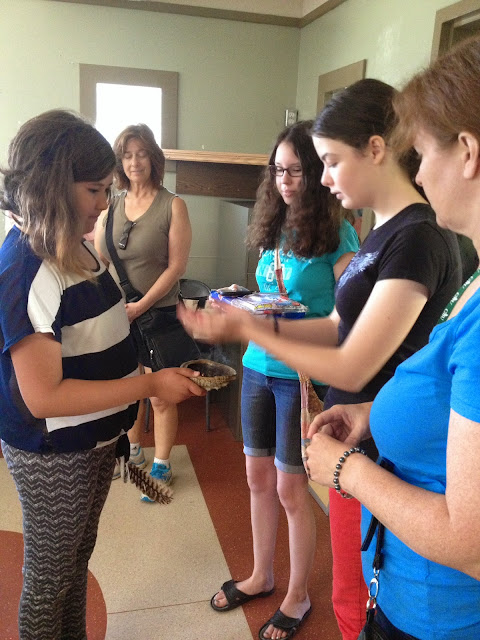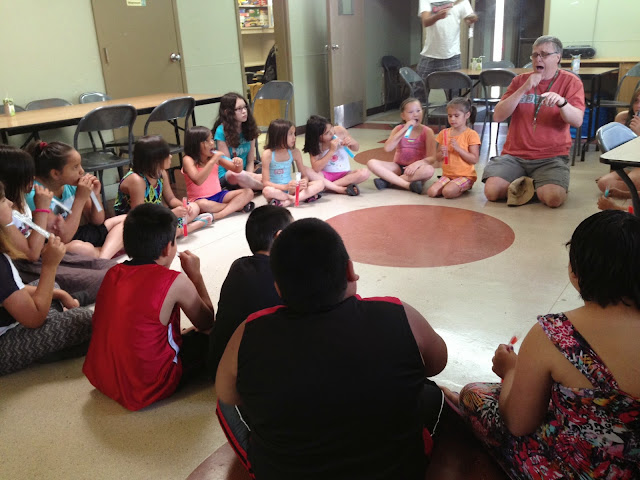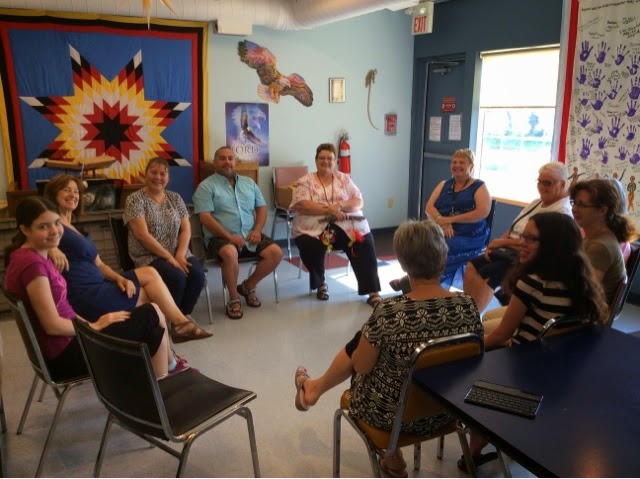I'll start today's blog entry where the day started at The Place of Hope. We had a sharing circle where everyone was asked to share some reflections from the previous day. As we went around the circle, one word that came up again and again was "overwelming." It had been overwhelming in terms of the information and the stories that we had had to absorbed and were only beginning to process and in other ways as well.
The word that came to me in the circle was also overwelming but especially in terms of the challenges that fill the community around the Place of Hope. With gangs, prostitution, drugs, alchoholism and much more, the problems just seem too big. They are overwhelming. And when I face an overwelming challenge like that, the temptation is always to throw up my hands and say, "It's too big, it can't be solved so what is the point of even trying. We'll never get anywhere anyways."
To see the ministry that is taking place here at WICM against overwelming problems like that is really amazing. How these people -- in fulfillment of the vision given to Margaret Mullin -- managed to build a place where people could come and live and turn around lives that seem impossible to turn around is an amazing story. The funds were raised, the permissions and property were obtained. The local gang didn't want it built and did everything to threaten and strike fear in the heart of the people involved in the project but they still built it. The overwhelming was overcome.
And then the people came. It seemed impossible for them to turn their lives around when they were in such a mess. But they did. Not all of them, of course. Some have dropped out. Some have had to be told to leave but there are these wonderful success stories. The overwhelming was overcome.
Yes, I think there is a message for me in that somewhere -- when I feel like I'm up against something overwhelming.
After our sharing circle we headed over to Flora House to spend the rest of the morning and the afternoon with the kids in the day camp program. The kids were awesome and were very open to meeting us and interacting with us. Before I knew it, there were a few moments break as the staff had to organize a few things and I found myself thrust forward. "Tell a story." they said.
Anyways, I just went with one of my favourites of Jesus because it was the only one I could think of. It was the story of the shepherd who had 100 sheep and had to count them every day and kept falling asleep (because we all know what happens when you count sheep). But one day he was suddenly wide awake because he only counted 99! Well you all know how that one ends -- with a big celebration with all the shepherds friends and neighbours (I figure that had a big lamb stew). Jesus said that parties like that are what the kingdom of God is like. (That's totally how Jesus told the story, right?)
Anyways they listened graciously to my story and I felt connected with them from there.
Spending the afternoon with them at the water park was just pure fun. I loved to watch eight year old Johnny play. He just enjoyed everything 100%. He loved everything that you would do with him whether is was jumping on the bridge or playing in the water. Johnny has a number of things to struggle with but I don't think I'll soon forget him.
All of the kids were well behaved and loved everything you did with them. Naomi in particular seemed to latch onto the girls. They were amazing with her too.
I talked with one of the staff from Flora House in the van. His name is Brad. He's had a tough history and managed to come out of many things. For many years he ran a gym and taught mixed martial fighting. There were some things he could do in that line of work to help kids to find a better path in life, but ultimately he felt like he wasn't doing enough.
He also spent some time working in halfway houses, working with youth on their way out of detention. These places are supposed to help them to prepare to reintegrate back into society but there he found that the centres were just not doing enough to really help these young people to get back to productive and positive lives. It seemed that there was so little being done. He wanted to accomplish more.
So now Brad has been at Flora House for about a year. The great thing there is that he gets to know these kids and young people while they're still young. He knows that very soon (if it hasn't happened already) they will be facing enormous pressures to get involved in gangs and drugs, prostitution or whatever it may be. But his hope is that if they know people like him, people that they can talk to and trust, it will give them options that they wouldn't have had otherwise. It will enable them to make better choices and find the resources to help them when they need it. It is one way to make the overwhelming problems in these neighbourhoods become overcomeable. If they can catch these kids before they fall, think of the possibilities for the future. Now that I'm getting to know these kids, I know that there is tremendous potential in them. What can't they do for their community? The ministry of Flora House is very important indeed when you look at it that way.
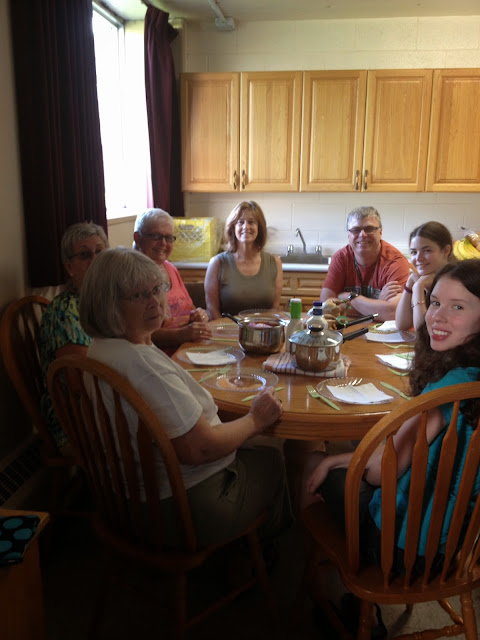
We came back to our room tonight and cooked an ate together using our limited resources. The salad was in a pot. We had to "scoop" ice cream with a knife, The chicken was warmed in a frying pan and kind of pulled apart. We all agreed it was the best supper ever! It was so good to be together as a group and share our various experiences. (Some had been painting at Flora House -- an important project that I hope to get into tomorrow). God has really blessed us with a wonderful team. Everyone seems to be providing something essential to the work of the whole. It is a perfect model of the functioning of the body of Christ. What a blessing to be here together as a team.
Well, off to bed because I know that tomorrow will be just as challenging, if not more!
s


